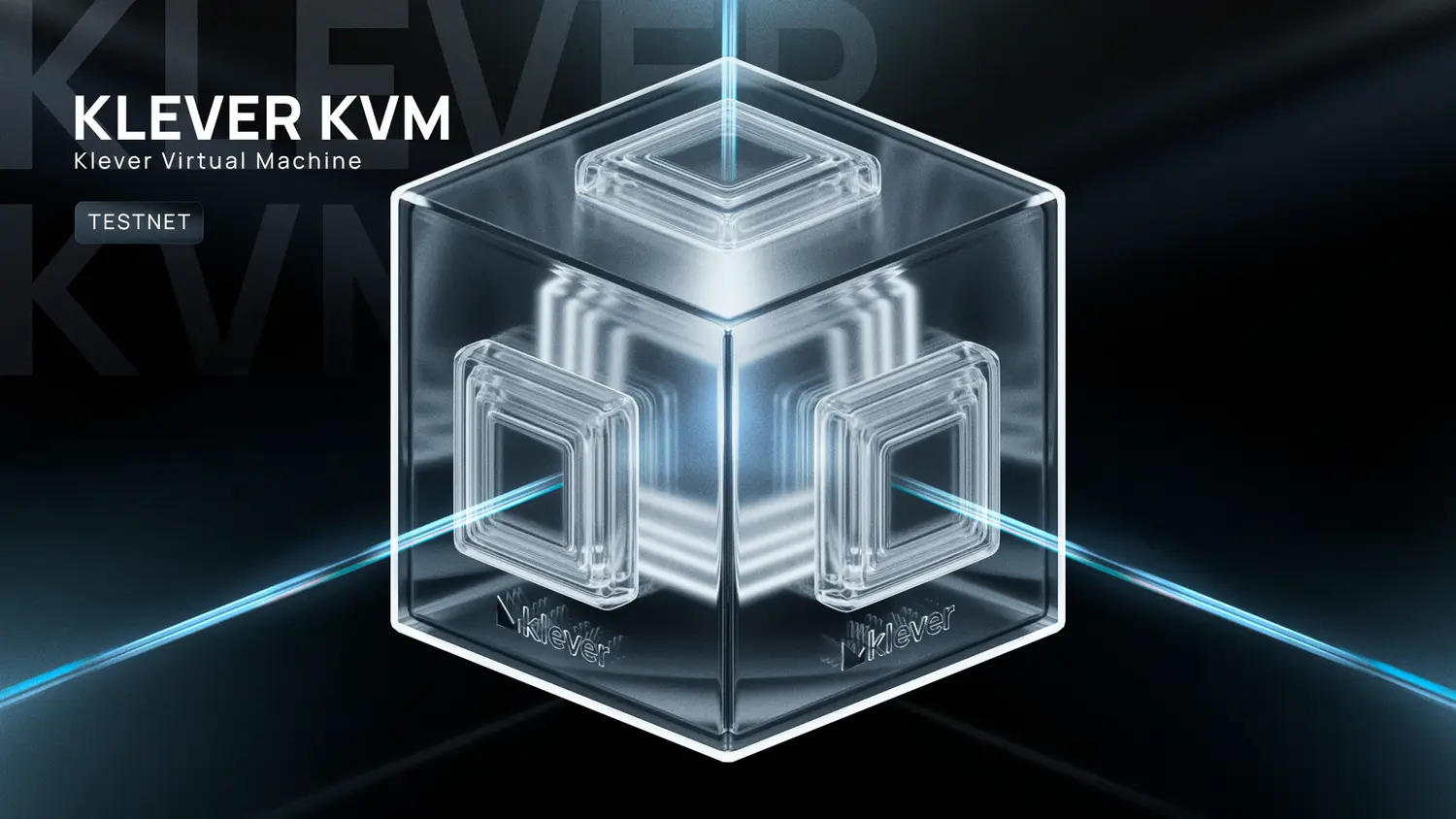
Synonymous solely with cryptocurrencies, blockchain technology has evolved into a revolutionary force that transcends the financial sector. In addition, its decentralized, secure, and transparent nature has paved the way for applications that are modification industries across the globe. This article aims to explore 11 disruptive benefits of blockchain technology.
It’s not just a technical overview; it’s also an invitation to understand how blockchain is transforming our world in ways we might never have imagined.
The Rise Beyond Cryptocurrency
Bitcoin made blockchain famous, but the technology’s potential goes far beyond digital currencies. From supply chain management to blockchain in healthcare, blockchain’s disruptive benefits are unveiling new model of efficiency, trust, and innovation. But what exactly are these benefits of blockchain technology, and how are they shaping our future? Let’s dive in and explore together.
The 11 Disruptive Benefits of Blockchain Technology
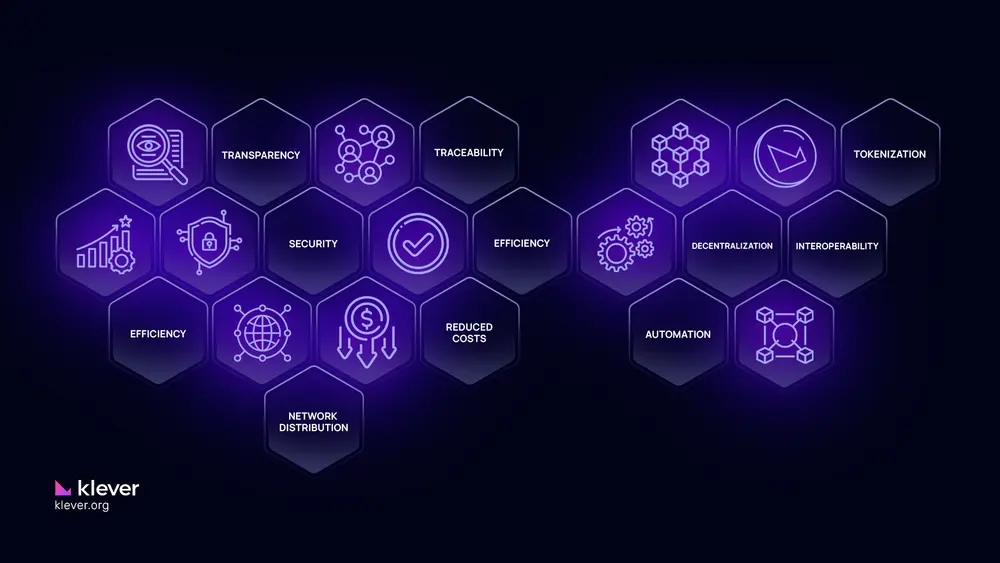
Efficiency
Blockchain’s decentralized nature eliminates the need for intermediaries, reducing processes and reducing costs. Consequently, transactions are conducted peer-to-peer, each block containing a timestamp and a link to the previous block. This structure ensures that a transaction cannot be altered once it is recorded, enhancing efficiency and trust.
Transparency
Security is principal in our digital age, and blockchain cryptography protects against fraud and unauthorized access. Additionally, each transaction is encrypted and linked to the previous one, creating a virtually impossible chain to alter without altering every block in the chain. Therefore, this security extends to personal data, financial transactions, and more, providing of trust in a world of uncertainty.
Security
The distributed nature of blockchain technology means that no single entity controls the entire chain. This decentralization enhances security and ensures that the network remains intact even if one blockchain node fails. It’s a democratic approach to data management, where every participant has an equal say, fostering a sense of community and collaboration.
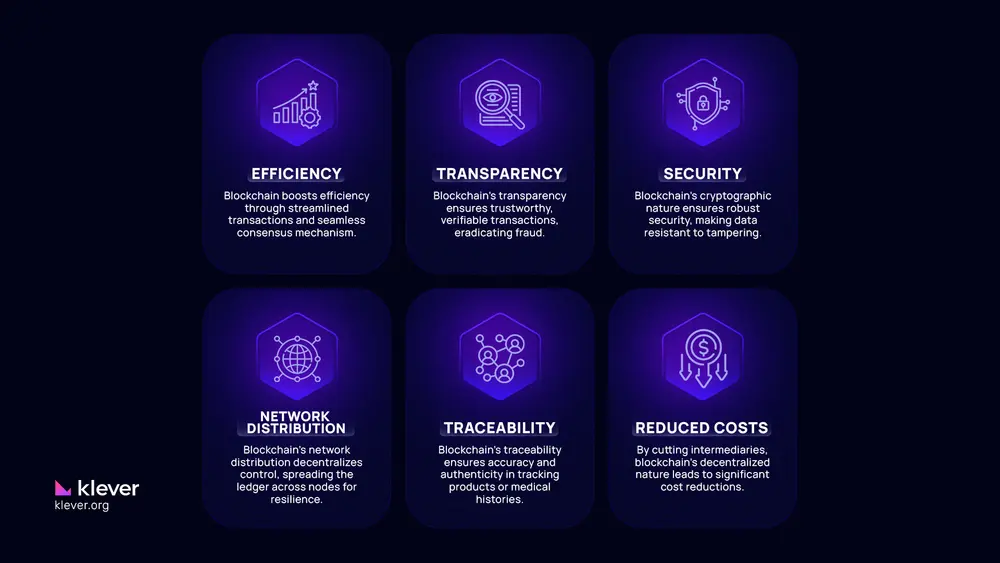
Network Distribution
The distributed nature of blockchain technology means that no single entity has control over the entire chain. This decentralization enhances security and ensures that even if one blockchain node fails, the network remains intact. It’s also a democratic approach to data management, where every participant has an equal say, fostering a sense of community and collaboration.
Traceability
Traceability has practical benefit that has real world applications. For instance, whether tracking the origin of products in a supply chain or tracing the flow of funds in a complex financial transaction, blockchain’s immutable record provides a clear and unalterable history. As a result, this traceability enhances accountability and can even aid in combating fraud and unethical practices.
Reduced Costs
In traditional transactions, intermediaries often add complexity and cost. Conversely, blockchain eliminates these middlemen, allowing for direct transactions that reduce fees and enhance efficiency. From international money transfers to complex contractual agreements, blockchain’s ability to cut costs is a game-changer in financial management.
Availability
Blockchain’s decentralized structure ensures high availability. Data is stored across multiple nodes, ensuring that even if one part of the network fails, the information remains accessible. This redundancy enhances reliability and ensures that critical data is always at hand, whether for financial transactions, medical records, or any other application where uptime is crucial.
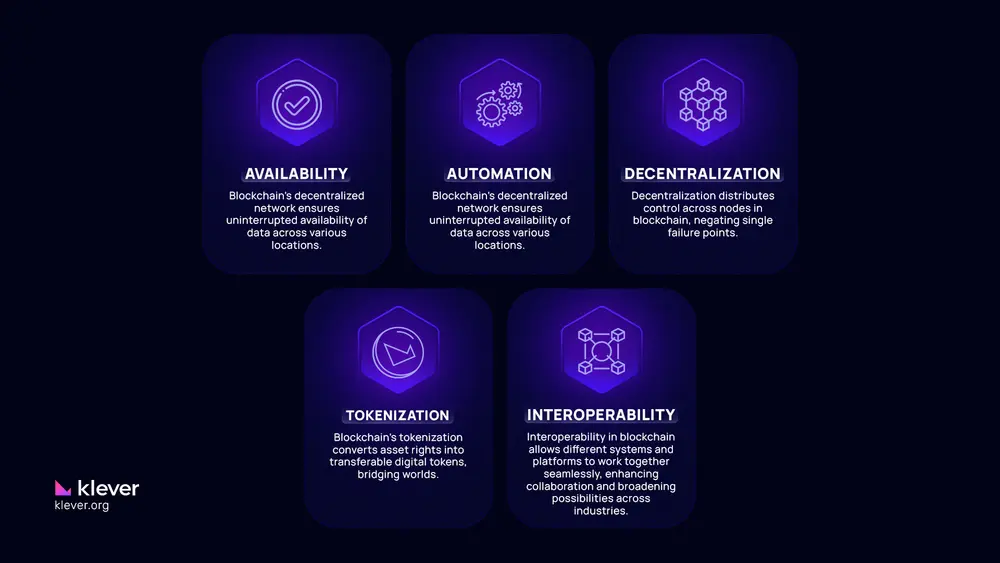
Automation
Smart contracts are one of blockchain’s most innovative features. Moreover, these self-executing contracts with the terms directly written into code automatic complex processes, reducing human error and streamlining operations. From automating legal agreements to facilitating harmony international trade, smart contracts reshape the way how we conduct business.
Decentralization
Decentralization is at the heart of blockchain technology. By distributing data across a network of computers, blockchain ensures that no single entity has control. Consequently, this decentralization enhances security, fosters collaboration, and democratize power across the network. It’s a complete change from traditional centralized systems, introducing a new model of trust and collaboration.
Tokenization
Tokenization is transforming the way we view assets. By representing physical or digital assets as tokens on a blockchain, ownership and transfer become frequent and secure. Whether tokenizing real estate, art, or digital currencies, this process enhances liquidity and opens up new avenues for investment and trade.
Interoperability
In a world of diverse systems and platforms, harmony is key. So, blockchain’s ability to facilitate communication and interaction between different network interaction enhances efficiency and collaboration. Whether connecting different financial institutions or enabling seamless data exchange between healthcare providers, compatibility is a cornerstone of blockchain’s disruptive potential.
The exploration of 11 disruptive benefits of blockchain has revealed a technology that is not merely confined to the realm of digital currencies. Instead, it’s a constant force redoing industries, enhancing efficiency, security and innovation.
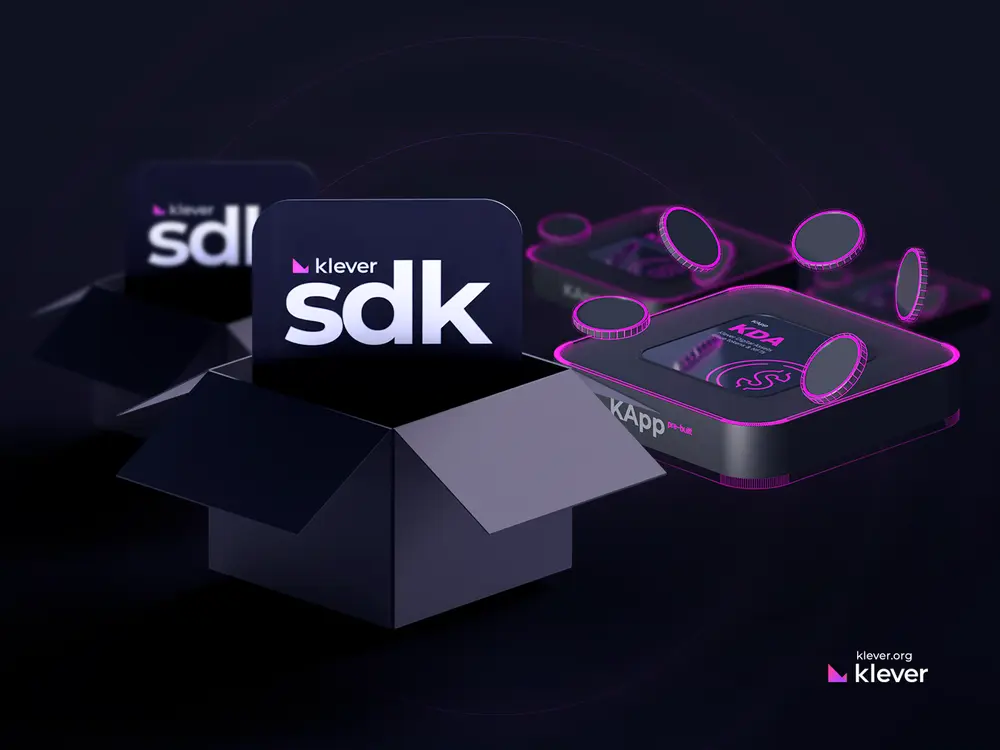
KleverChain stands as a testament to this potential, embodying these principles in a real-world application. So, as we continue to witness the evolution of blockchain, platforms like Klever Blockchain will play a pivotal role in defining the future landscape.
The possibilities are endless, the future is bright and your only limit is you.
